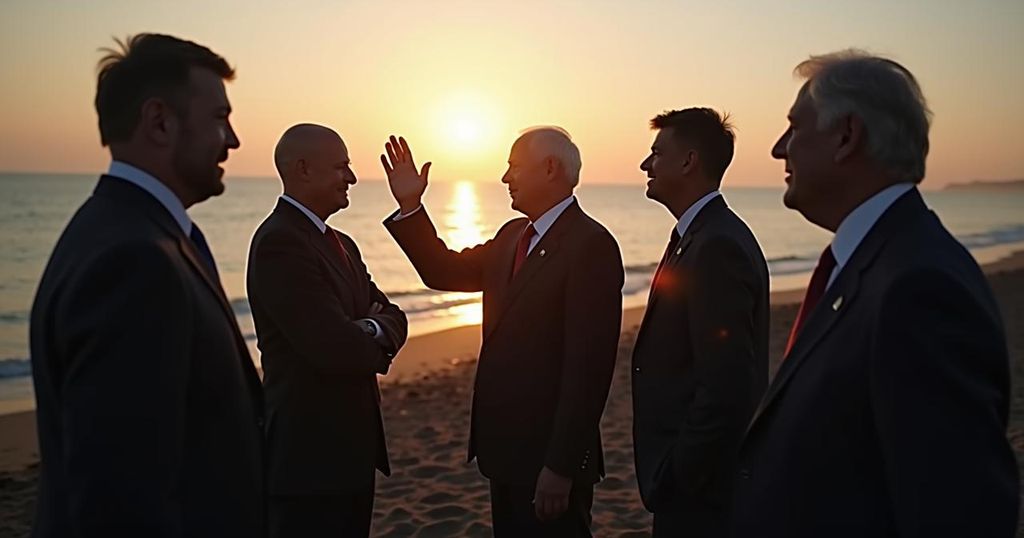Global Reactions to the Death of Hezbollah Leader Hassan Nasrallah
Hassan Nasrallah, Hezbollah leader, has reportedly died due to an Israeli air strike in Beirut, triggering varied global reactions. Hezbollah vowed to continue its fight, while Israel justified the action based on Nasrallah’s history of violence. Regional players, including Hamas and Iran, expressed solidarity, framing his death as a challenge to resistance efforts against Israel. This development heightens tensions and raises concerns of a broader conflict in the Middle East.
Global reactions emerged following the reported death of Hassan Nasrallah, Hezbollah’s long-reigning leader, due to an Israeli air strike in Beirut. This development marks a significant escalation amid ongoing tensions along the Israeli-Lebanese border, instigating fears of a possible broader conflict in the region. Hezbollah confirmed that Nasrallah had succumbed to injuries sustained in the air strike and expressed their commitment to continuing the struggle against Israel, referencing their leader as a martyr. The Lebanese public remains divided regarding Hezbollah’s influence, with some viewing the group as defenders of the nation, while others resent its role in exacerbating sectarian divisions. The Israeli military justified the operation, labeling Nasrallah as a legitimate target due to his history of orchestrating attacks that resulted in civilian casualties. Israeli officials reaffirmed their campaign against Hezbollah, clarifying that their conflict is not with the Lebanese populace but with the group itself. Meanwhile, responses from regional entities, including Hamas and Iranian leadership, reinforced solidarity with Hezbollah, emphasizing the importance of resistance against Israel. Amid these developments, the Houthis from Yemen declared their intent to continue their struggle alongside Hezbollah, asserting that the spirit of resistance remains unyielded. This notable event encapsulates a pivotal moment in Middle Eastern geopolitics, raising significant questions about future conflict dynamics in the region.
The death of Hassan Nasrallah has triggered a cascade of responses from various actors in the Middle East, highlighting the intricate web of alliances and hostilities that characterize the region. As Hezbollah’s leader, Nasrallah was viewed both as a national figure in Lebanon and a significant symbol of resistance against Israeli actions. His leadership played a central role in defining Hezbollah’s military strategy and political posture within Lebanese society and the broader Arab world. The nature of reactions showcases the polarized views on Hezbollah’s influence, reflecting the group’s complex relationship with both the Lebanese populace and regional dynamics involving adversaries like Israel and backing entities such as Iran. The incident occurs within the context of an extended period of conflict, including periodic escalations along the Israel-Lebanon border, making Nasrallah’s death a potentially catalytic event for future hostilities.
In summary, the death of Hassan Nasrallah, confirmed by Hezbollah, has garnered varied global reactions, highlighting the significant ramifications for Lebanon and the region. Israeli officials justified the attack, framing it within the context of a larger campaign against terrorism, while regional allies of Hezbollah expressed their solidarity and commitment to resistance. This situation stands as a critical juncture in Middle Eastern geopolitics, raising the stakes for further confrontations and potentially altering the power dynamics in the already volatile region.
Original Source: www.france24.com




Post Comment